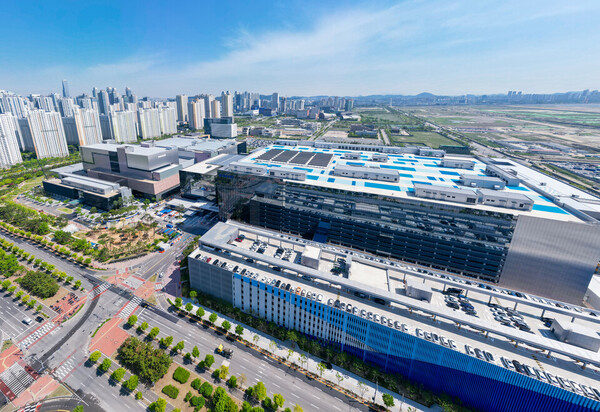The U.S. Congress’ proposal of the Biosecure Act, which targets Chinese biotech companies, will increase supply chain instability in the global pharmaceutical industry but it may benefit top CDMOs such as Lonza and Samsung Biologics in the mid- to long-term, a local brokerage said.

According to a report by Eugene Investment released on Monday, securing a stable supply chain in the global pharmaceutical market is becoming important as the U.S. proposed the Biosecure Act in January as part of the U.S. sanctions on China.
The Biosecure Act, a bill that could restrict transactions with Chinese biotech companies, including BGI and WuXi Biologics, passed the U.S. Senate Homeland Security Committee on March 6. The bill aims to protect Americans' personal health information and genetic data by restricting transactions with certain Chinese biotech companies. China plays an important role in both supply and demand in the global pharmaceutical industry.
The report noted that the global pharmaceutical industry's nature is such that therapeutic innovation trumps geopolitical risk, so the impact of geopolitical risk on pharmaceutical companies' performance is unlikely to be felt in the short term.
However, it could affect investor sentiment, leading to a differentiation in valuations of global contract development and manufacturing organizations (CDMOs).
It cited Switzerland's Lonza, South Korea's Samsung Biologics, and China's WuXi Biologics as major global CDMOs. In 2023, these companies' revenue was about $6.5 billion for Lonza, $5 billion for Samsung Biologics, and $3 billion for WuXi Biologics. Samsung Biologics' production capacity was about 600,000 L, Lonsa's was 500,000 L, and WuXi Biologics was 500,000 L.
After 2025, Lonza's production capacity is expected to increase to 78.7 million L by acquiring Genentech's production facility in the U.S., while Samsung Biologics' production capacity is expected to expand to 78.4 million L with the completion and commercialization of the fifth plant in the second half of 2026. WuXi Biologics is expected to expand its production capacity to 600,000 L when its new Singapore production plant gets operational, but the report said geopolitical risks are expected to be challenging due to the proposed Biosecure Act.
The biopharmaceutical market continues to grow due to rising demand and increasing clinical trials of new drug pipelines. In particular, the patent expiration of multinational pharmaceutical companies' flagship products is expected to accelerate from 2025, which is expected to increase the share of production through CDMOs in the long term. According to Mordor Intelligence, the global CDMO market is expected to grow at an annual average of 13 percent, reaching nearly double the size of 2023 by 2029.
Kwon Hae-soon, an analyst at Eugene Investment, predicted that Samsung Biologics will benefit from this growth in the global CDMO market.
"Samsung Biologics is expected to continue growing profits due to increased production volumes as its four plants are commercialized," Kwon said. "The company's profit growth is expected to exceed 20 percent this year, the highest among global CDMOs, as the Korean won continues to weaken against the U.S. dollar."
If Samsung Biologics' eighth plant is built, its production capacity will be expanded to 132.4 million L in the long term, Kwon predicted.
“As Samsung Biologics will make mid- to long-term investments to secure their position in the field of novel therapeutics, the company will likely start producing ADC therapeutics at its fifth plant," she added.
Related articles
- Samsung Biologics signs ₩381.9 billion contract with UCB
- Samsung Biologics wins CDP's 'Leadership A-' rating for climate change response
- Samsung Biologics partners with LegoChem Biosciences for ADC development
- Samsung Bioepis breaks ₩1 trillion sales mark 12 years after founding
- Samsung Biologics posts over ₩1 trillion annual operating profit in 2023, 1st in Korean pharma

